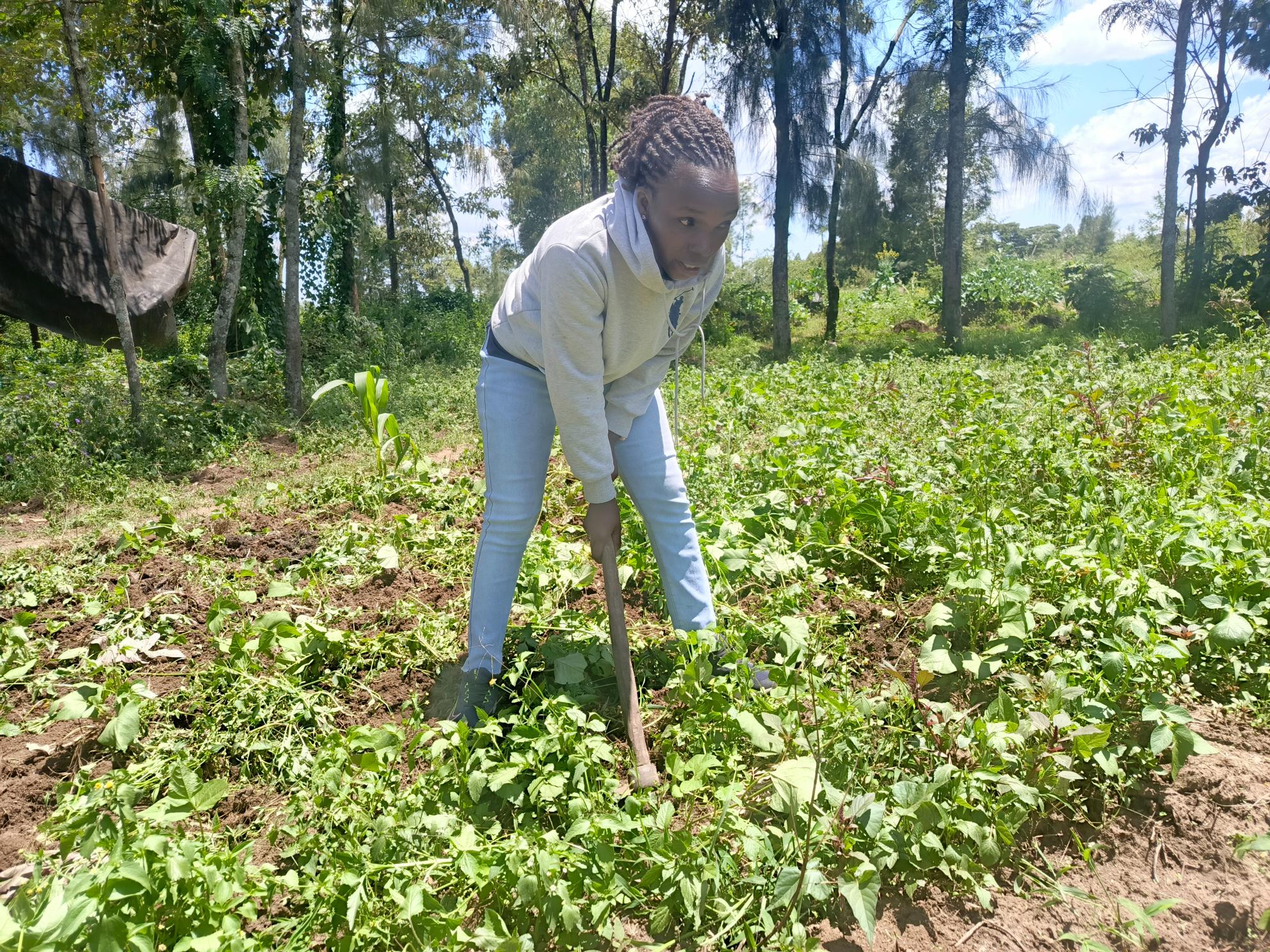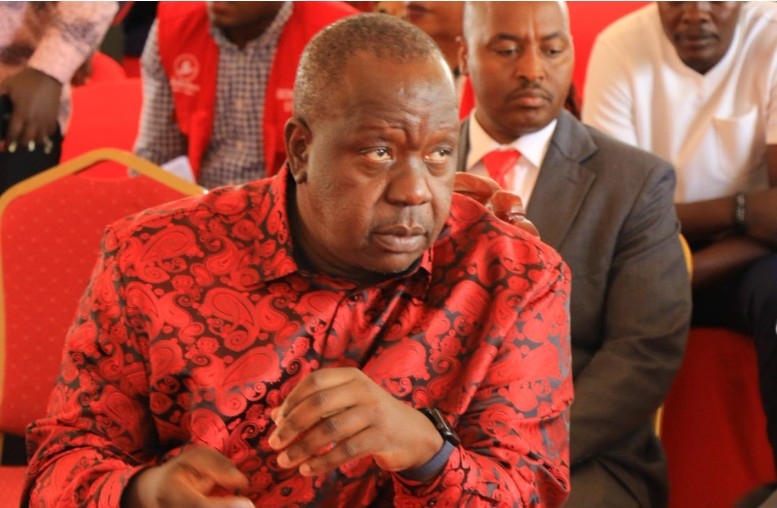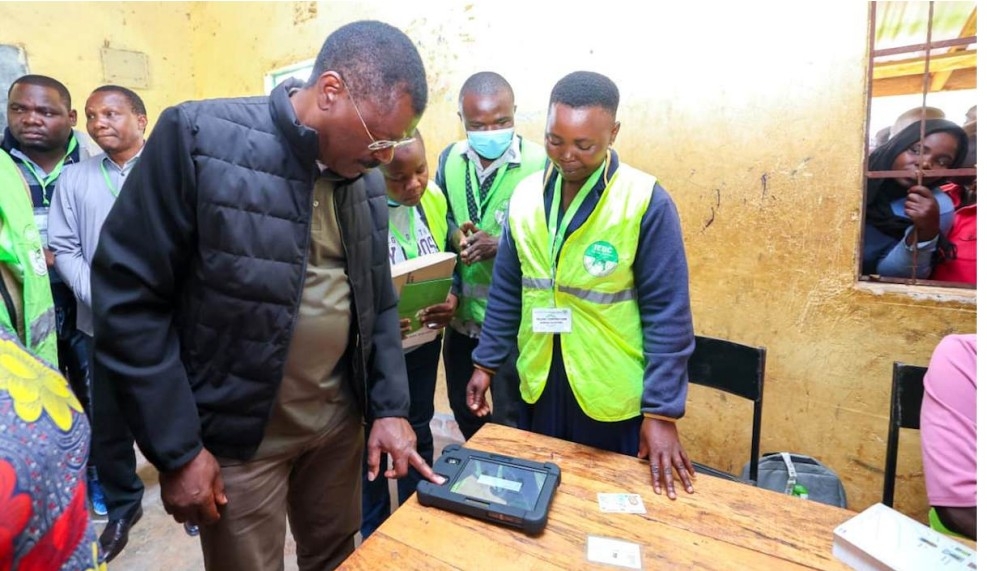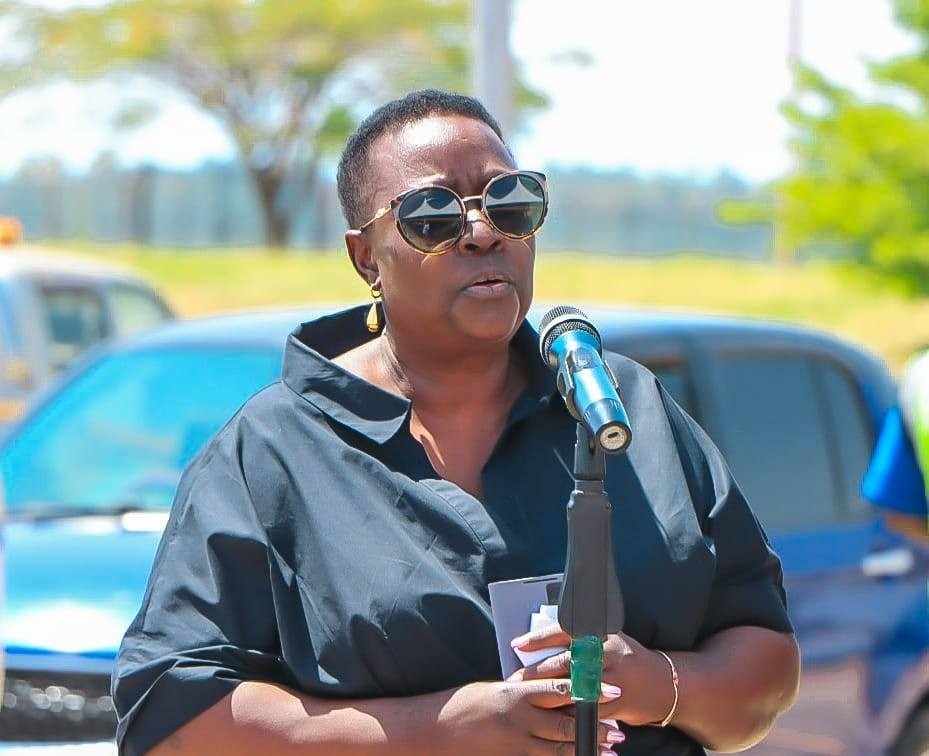Lenah Mwangi’s story captures the changing face of youth in agriculture—from job-seeking graduates to job creators. Her journey reflects how frustration can fuel innovation when supported by targeted programmes like IFAD’s Joy. Inuka AgriSolution’s blend of agritech, mentorship and digital skills shows agriculture’s evolution into a knowledge-driven, tech-enabled field. The story exposes a deeper shift: empowerment through collaboration, not charity. Government and donor efforts, tied to Kenya’s BETA agenda, create fertile ground for such transformations. Mwangi’s experience proves agriculture can be both profitable and purposeful — a viable path for Africa’s next generation of entrepreneurs.

Lenah Mwangi from Njoro in Nakuru county is challenging stereotypes about farming and inspiring a new generation of agripreneurs.
The 29-year-old trained accountant never imagined she would one day trade spreadsheets for seedlings. But today, she is the proud co-founder of Inuka AgriSolution, a social enterprise that is transforming the way young people view agriculture.
“After graduation, I couldn’t find a job because every vacancy required years of experience,” she recalls.
“That frustration pushed me to create my own path, and eventually help others do the same.”
Inuka AgriSolution, based in Egerton, was started with the intent of bridging the gap between knowledge and practice.
Today, they work with more than 1,000 smallholder farmers in Nakuru county across value chains such as potatoes, maize and cereals. She said the enterprise also partners with local institutions, particularly Egerton University, to link students with farmers for hands-on experience.
“The farmers gain new knowledge from students, while students get real-world exposure working with the community. It’s a win-win,” Mwangi says.
Inuka partnered with the Jobs Opening for Youths (Joy) Project, an initiative supported by the International Fund for Agricultural Development (Ifad) in 2022 to train her and her team as business development service providers.
They went on to mentor 15 young agripreneurs, 10 university students and five community youth, equipping them with business, communication and professional skills.
“We trained them from start to finish on how to start and manage a business, market products, and even prepare for job interviews,” she explains.
“By the end of 2023, seven had launched their own enterprises, while others found formal employment.”
Among the new ventures are agritech start-ups, black soldier fly farms, and digital marketing businesses serving local farmers.
Inuka itself has created jobs, employing three young people full-time and engaging five others part-time at its model farm and milling shop.
One of the standout stories is Margaret, a former teacher who joined Inuka’s mentorship programme and now runs her own milling shop and demonstration farm.
“Seeing people like Margaret succeed gives me so much joy,” Mwangi says with pride.
“Three of our mentees even won national awards through the Tupande–MasterCard Foundation partnership for excellence in mixed farming, horticulture and circular economy innovation.”
To keep pace with a fast-changing world, Inuka has woven digital skills training into its programmes. Working with partners like Greencom, young people now learn website design, digital marketing and app development for agribusiness.
“Even after the Joy Project ended in 2024, we kept going,” Mwangi says.
“We’ve trained five more cohorts of students and created opportunities for them to volunteer, innovate and earn through digital work.”
“I was once unsure too. I studied accounting, but agriculture changed my life. You can start small, even as a volunteer. That’s how I began, through the Cereal Growers Association, where I trained as a trainer of trainers in agronomy,” she explains.
She encourages youth to think beyond traditional farming. “You don’t have to own land to be in agriculture,” she says. “You can work in logistics, processing, packaging, or value addition. Even slicing, drying, or branding farm produce for busy urban consumers is agribusiness. The opportunities are endless.”
"And is there joy in farming? Absolutely! Agriculture has given me purpose, income and a chance to empower others. It’s not just about farming, it’s about feeding communities and creating jobs. That’s the real joy.”
Her journey reflects the wider transformation being driven by IFAD’s Joy programme, which has surpassed expectations across Africa.
According to Brian Chipili, the programme’s manager and Ifad’s technical specialist for employment, Joy has created nearly 60,000 decent jobs across nine African countries, almost triple its original target of 22,500.
“In Kenya, the programme has performed exceptionally well,” Chipili says.
“We work through partnerships with local organisations to exchange skills and ensure sustainability.”
Implemented under the BRCA SUA consortium alongside Ustadi Foundation and the International Labour Organisation (ILO), the Joy programme established youth training and innovation hubs at Egerton University, Pwani University and Shamberere Technical Training Institute in Kakamega county.
These hubs conduct value chain analyses, labour market studies, and short, practical training sessions aligned to local employment needs.
“We also provide business acceleration support, labour intermediation and psychosocial mentoring,” Chipili adds.
“Kenya has gone further by integrating mental health and career counselling into its model, and this is a major milestone.”
Chipili points out that Kenya’s results have been remarkable, and that against a target of 3,000 jobs under a $1.25 million (Sh161 million) budget, the programme created close to 5,000 jobs. Across the continent, Joy has achieved 273 per cent of its overall goal, generating 59,096 jobs to date.
“Our flexibility allowed us to adapt, especially during Covid-19, and that adaptability has been key to success,” he says.
A second, expanded phase is set to begin in 2026, extending to new countries including Sri Lanka and Zambia, with continued co-financing from Germany’s BMZ and the Bisa Foundation.
Sports CS Salim Mvurya commended Ifad and its partners for empowering young people and transforming agriculture.
“Agribusiness offers real opportunities for our youth to build livelihoods and contribute to national development,” he said.
He said under the Bottom-Up Economic Transformation Agenda (BETA), the government is prioritising value addition through County Aggregation and Industrial Parks (CAIPs) being established nationwide, including in Kirinyaga, Meru, Kwale and Busia.
“These parks will allow farmers to process produce like tomatoes and potatoes locally, helping them earn more instead of selling raw,” Mvurya said.
“We’re also reviving the leather sector through new facilities in Athi River.”
The CS also cited initiatives such as the Sh20 billion Nyota Project, which provides grants and mentorship for young entrepreneurs, and the rollout of digital hubs and free Wi-Fi to boost youth innovation and online work.
“We must connect our youth with opportunities in agribusiness, technology, and the creative economy,” he said.
“The agriculture of 20 years ago is not the same. Through digital tools like e-vouchers and farmer registration portals, we are modernising the sector and making it more attractive to the next generation.”
For Lenah Mwangi and thousands of young people across Africa, agriculture is no longer a fallback option. It is a platform for innovation, empowerment and change.
“When youth are empowered and supported, they create opportunities for others,” Chipili says.
“The real impact of Joy is to turn potential into productivity, and unemployment into empowerment.”
Instant analysis


















